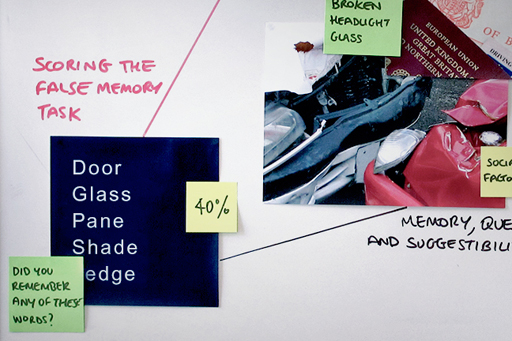3.3 Meaning of the false memory task

Which words did you remember correctly? Did you remember the word ‘window’?
Actually, it wasn’t present in the animation, yet researchers have found that participants recall the word about 40% of the time, and, when asked, tend to state that they were confident that the word (known as a ‘lure’) had appeared in the list. This test is known as the Deese-Roediger-Mcdermott (DRM) paradigm, after the three researchers involved in developing it (Deese, 1959; Roediger and McDermott, 1995).
The DRM paradigm demonstrates that people can form false memories, that is memories for things (or words) that they did not see. Several explanations have been offered for the effect, including that the neural activation caused by seeing related words ‘spreads activation’ to the lure words, or that the words cause participants to think of the lure and it is this thought that they remember. Whatever the cause, the DRM paradigm shows that human memory is complex, that people can form false memories and demonstrates just how difficult it is to get accurate information from a witness.
